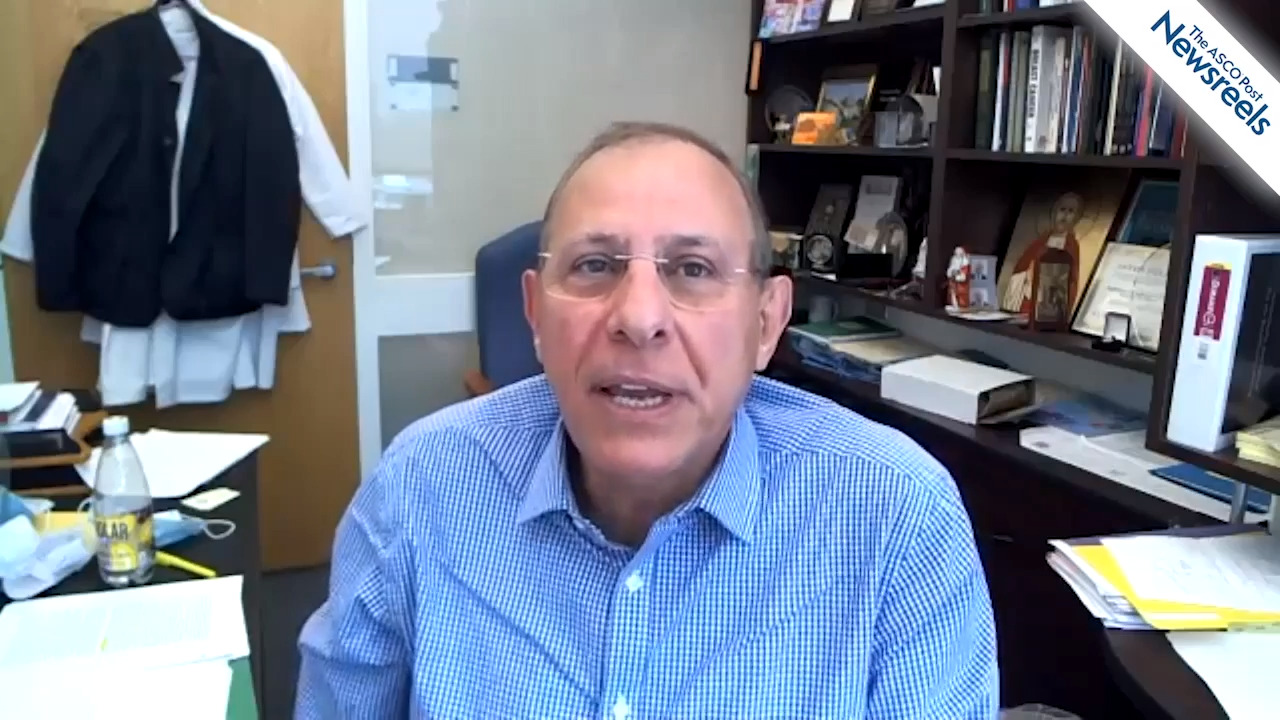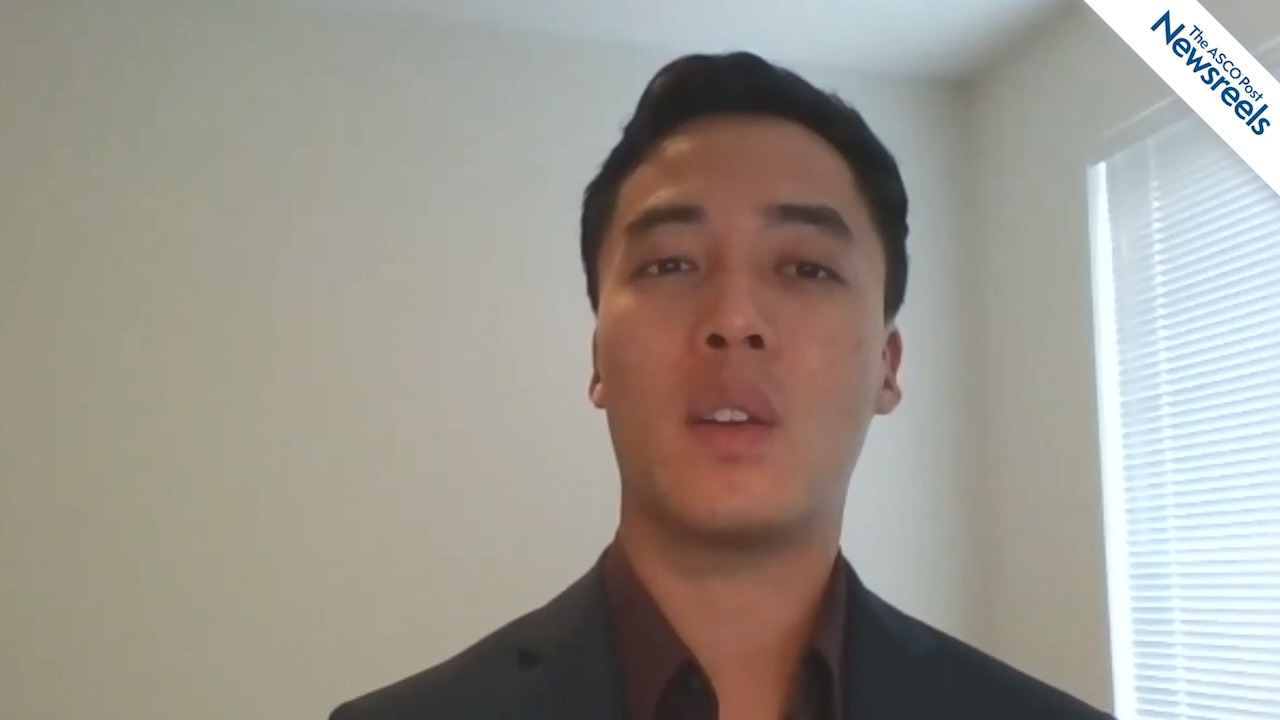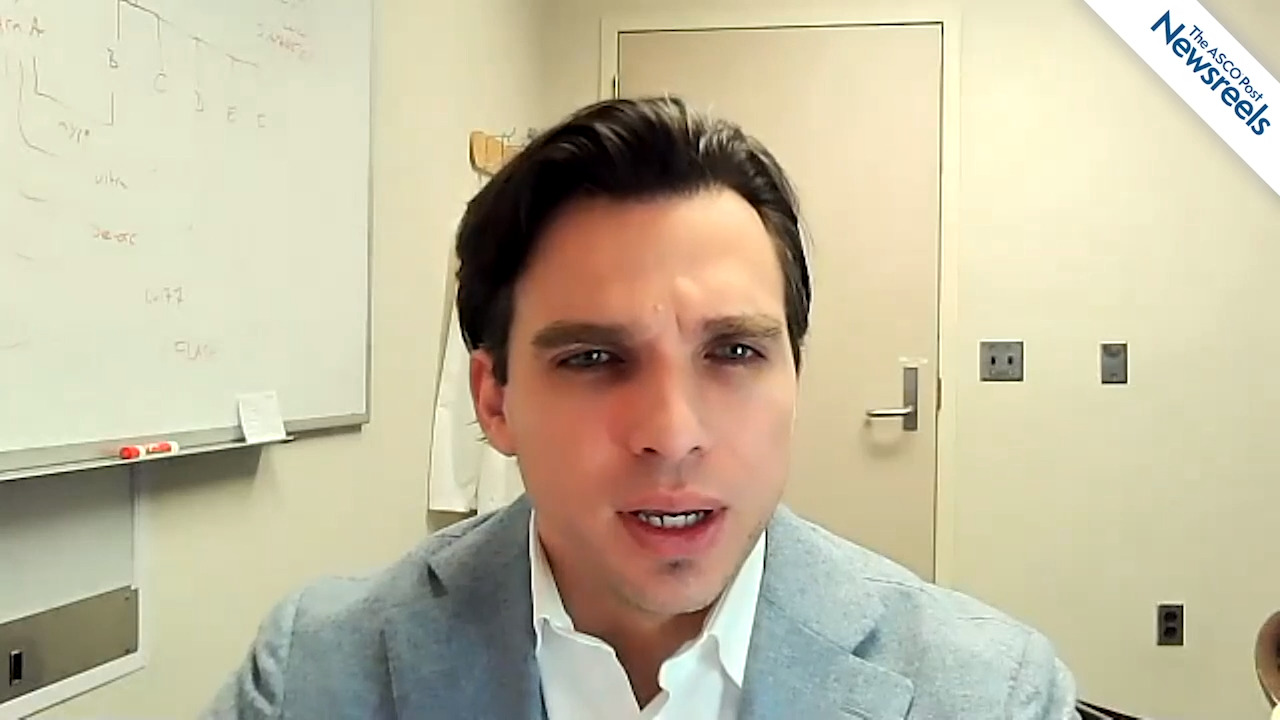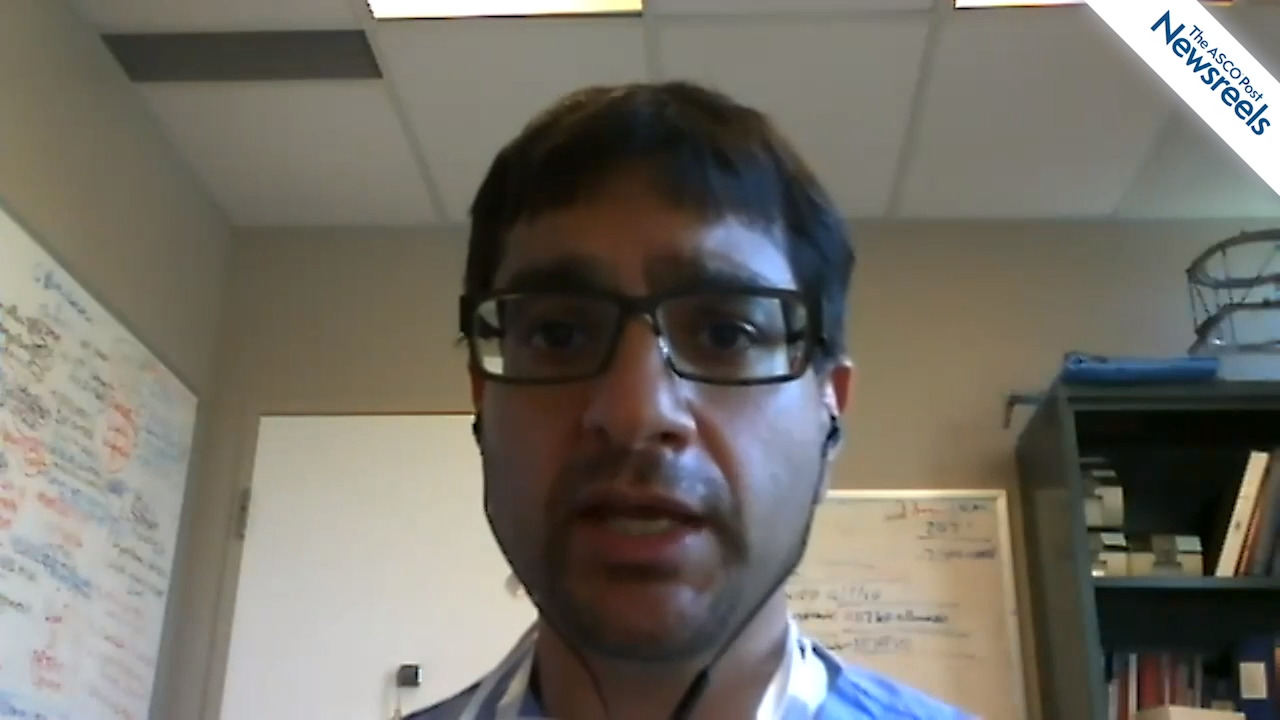Juliane Hörner-Rieber, MD, on Breast Cancer: Boosting Intensity-Modulated and Conventional Radiotherapies
2020 ASTRO Annual Meeting
Juliane Hörner-Rieber, MD, of Heidelberg University Hospital, discusses phase III results of the MINT trial, which showed that conventionally fractionated intensity-modulated radiotherapy with a simultaneous integrated boost was noninferior to three-dimensional conformal radiotherapy followed by a sequential boost for both local control and cosmesis in patients with breast cancer (Abstract 19).
The ASCO Post Staff
Alphonse G. Taghian, MD, PhD, of Massachusetts General Hospital, reviews the 10-year follow-up of a dose-escalation trial studying accelerated partial-breast irradiation and discusses the optimal dose, adverse effects, and cosmetic outcomes (Abstract 25).
The ASCO Post Staff
Justin Oh, MD, of the University of British Columbia, discusses results from the ASCENDE-RT trial, which compared a low-dose–rate brachytherapy boost to a dose-escalated external-beam boost for patients with high- and intermediate-risk prostate cancers (Abstract 127).
The ASCO Post Staff
Neha Vapiwala, MD, of the University of Pennsylvania, who served as a discussant for LBA1, summarizes her review of this study of patients with prostate cancer who had biochemical recurrence in the post-prostatectomy setting, who were candidates for salvage radiotherapy, and who received either conventional imaging or PET scans to help determine the course of treatment.
Daniel E. Spratt, MD, of the University of Michigan Rogel Cancer Center, discusses a pooled analysis of two phase III trials showing adjuvant androgen-deprivation therapy (ADT) improves biochemical control and reduces distant metastasis when compared with a neoadjuvant approach, with no difference in late gastrointestinal or genitourinary toxicities. The analysis also showed that delaying radiotherapy to deliver neoadjuvant ADT did not benefit most patients (Abstract 32).
The ASCO Post Staff
Arjun Sahgal, MD, of the Sunnybrook Health Sciences Centre, discusses results of the first phase III trial to suggest that dose escalation with stereotactic body radiotherapy may be superior to conventional palliative radiotherapy in improving pain outcomes for patients with spinal bone metastases (Abstract LBA2).





